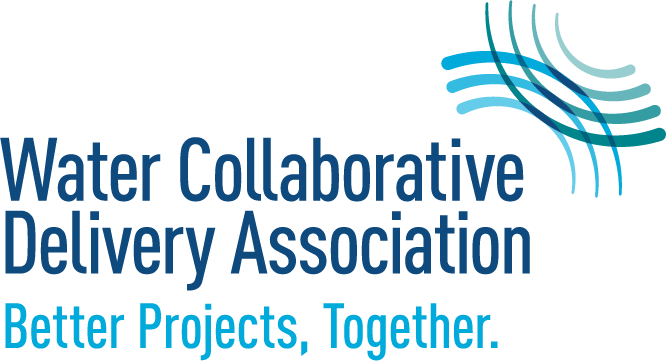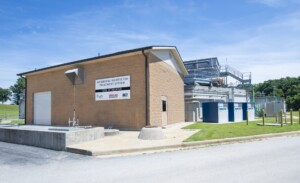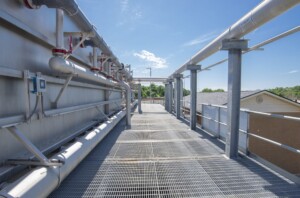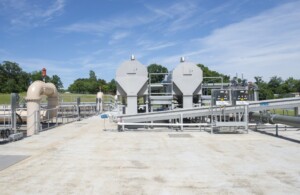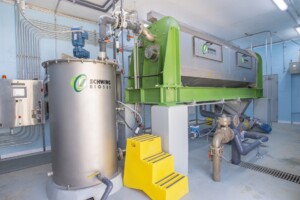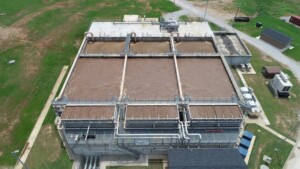Challenge
Decatur is a small city in Northwest Arkansas whose wastewater treatment plant is responsible for treating wastewater from the neighboring city of Centerton, AR, and from the local Simmons Foods Processing Plant. In 2014 the city of Centerton began experiencing an unexpected growth spurt, almost doubling its size, forcing the City of Decatur to research wastewater treatment plant expansion options to accommodate the population growth.
Most of the research pointed to adding infrastructure to the existing SBR plant to increase capacity, which would be a large, expensive undertaking. However, there was one somewhat unconventional idea that would allow the plant to more than double their current capacity while adding very little infrastructure and for less cost overall. Together with the design-build team, the City of Decatur weighed their options and chose to rise to the challenge of becoming the first wastewater treatment facility in Arkansas to convert to a membrane bioreactor (MBR) plant.
Approach
The City chose the progressive design-build delivery method because they wanted to maximize team collaboration and come up with the most innovative solution for their plant in the least amount of time. They conducted a single-step selection process with a request for qualifications (RFQ) and interview resulting in a qualifications-based selection (QBS) that included Crossland Heavy Contractors. The design-build team evaluated four different treatment options and weighed the pros and cons of each with the City. Ultimately, they chose to retrofit the existing sequenced batch reactor plant with an MBR. This option was budget-friendly and promised minor infrastructure work, but it would come with the challenge of keeping the existing plant operational during the entire construction process.
The design-build team’s services for this project included the following:
- Obtaining all construction related permits
- All treatment plant design and construction
- Equipment installation and startup
- Electrical and instrumentation systems integration with the city’s existing equipment
- Compliance with all environmental quality requirements
- Finalizing operational plan and providing all associated operation manuals
- Providing operation and maintenance training to city staff
- Completing all required equipment and facilities acceptance testing and warranties
Following completion of construction and successful startup, the City of Decatur began operating and maintaining their facilities while producing effluent quality that was well within the limits set by their governing agencies.
Results
The final design of the MBR retrofit included an influent pump station, existing wet-well expansion, process piping, electrical building, and equipment for fine screening, sludge dewatering, ultraviolet disinfection, aeration, chemical injection, and biological treatment. From design inception through construction, the project lasted 24 months, but there were many obstacles to pass along the way. The design-build team functioned as a fluid partnership and was able to solve issues quickly when they arose. The team was also able to provide cost-saving and constructability ideas throughout the entirety of the project, which gave the city a better end product. These innovative approaches included placement of MBR tanks on top of the existing SBR equalization structure, allowing for siphoning of permeate water, reducing energy consumption and minimizing plant shutdowns, incorporation of VFDs on existing equipment, implementing SCADA in order to automate the new to existing plant, and conducting clean water testing before the train shutdown to make the startup more efficient.
The successful completion of the project in April 2019 made the Decatur Wastewater Treatment Plant the first MBR plant in the state of Arkansas, and it also became the first progressive design-build project in the state. The project now enables the City of Decatur to be in compliance with the ADEQ, with the ability to treat up to 4.6 mgd (a 109% increase from the initial capacity) for roughly $4.08/gallon of treatment capacity.
Other WCDA member firm involved: Ferguson Waterworks (supplier of pipes, fittings, and valves)
